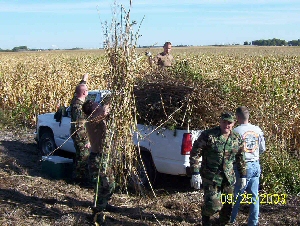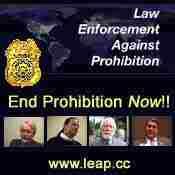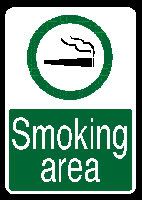
Ever want to see a perfect example of rank government propaganda? Watch this public relations stunt filmed by CNN of moralist-masquerading-as-drug czar John Walters making a flaccid attempt at being funny, and relevant. The video immediately goes into a 2:30 story about outdoor cannabis in California that largely parrots the government’s party line.
Some thoughts after watching the videos:
-John Walters, the self-described anti-1960s warrior (well, in the video he apparently has moved onto hating the ‘values’ of the 1970s), lumbers up a hillside for a highly staged public relations stunt and the best message he can stammer out is to try to shame ‘Hollywood’ (a favorite target of rightwing moralists) into ‘helping us spread the word against cannabis’ (this is the very same rhetoric Reagan and to a degree Bush 1.0 employed to incite emotional contagion in the media against ‘drugs’ in the halcyon ‘just say no’ days).
Help the ONDCP? Is Walters whining that Hollywood is no longer an ONDCP stooge?
Is Walters forgetting the hundreds of absurd and insulting ads from the Partnership for a Drug-Free America, produced largely gratis by, well, ‘Hollywood’? Or, when the ONDCP used to sneak anti-cannabis ads into popular TV shows produced in, well, Hollywood, before NORML successfully sued them via the FCC?
-What is it with the obsession these drug czars have with trying to pigeon hole every derogative thing they can think to say about cannabis into what they believe is a witty dig on ‘Cheech and Chong’? Clinton’s Drug Czar, former General Barry McCaffrey, frequently would deride medical cannabis as “Cheech and Chong medicine”.
How’d that work General? Apparently, Walters has not learned from such blundered, detached-from-science rhetoric.
Also, my guess is that Walters is likely a big Bill O’Reilly fan. Shocking, I know. Why do I surmise as such? Did you catch all the weird references from Walters in the video to people who use cannabis being in their “basement”? The only person I’ve ever heard, on numerous occasions, make references to cannabis consumers as ‘boobs in the basement’ is O’Reilly.
Ironically, on the times that O’Reilly disparages cannabis consumers as ‘boobs in the basement’ he is usually quick to add that he favors decriminalizing cannabis for adults.

BTW, while NORML’s blogs are not usually the environ for a commercial plug, but since Walters chose to waste the taxpayers’ money in southern California to propagandize, I think it only karmic that I let readers know that Cheech and Chong have just re-united and are going out on tour in September. Get your tickets here…think of it as good time protest against the government’s war on cannabis consumers. Also, there is a rumor that Cheech and Chong will be speaking at the upcoming Democratic National Convention. If true, how those apples Walters?
Tommy Chong is a NORML Advisory Board member and served 9 months in a federal prison for selling bongs.
-Walters and company claim to care about the safety of law enforcement personnel trying to enforce our country’s feckless cannabis prohibition laws, namely the effort to eradicate domestically grown cannabis? If true, 1) prohibition, rather than tax-n-control policies create any attendant violence associated with the uncontrolled sales of cannabis and 2) I think it entirely avoidable for the deaths of three to eight police officers and pilots that perish annually flying over the countryside in the US looking for ‘needles in a haystack’, not because of prohibition-created criminals, but from junky, faulty and old Viet Nam era helicopters often used on loan from state national guard units.
Hey, Czar Walters, any law enforcement personnel die last year flying around looking for tobacco, grapes, apples, barley, corn, potatoes, etc…?
Yep…I thought not.
-Walters and the ONDCP care about illegal aliens who grow cannabis on public and private lands? Really? Any illegal aliens growing tobacco, grapes, hops, potatoes, apples, etc…?
If Walters cares about illegal immigrants supposedly being forced by who he claims are Mexican drug cartels to tend illegal cannabis gardens, then he can’t morally and intellectually continue to support the failed policies of cannabis prohibition that creates a distribution system for cannabis where some of the players will camp in the woods and live off of the grid.
Finally, Walters says in the video ‘Hollywood and the American people need to know the consequence of these plants”.
Wrong! More importantly: Hollywood and the American people need to know about the misguided efforts and abject failure of cannabis prohibition, and Walter’s zealous efforts to perpetuate it.






 Who among us doesn’t like to brag after a job well done? It’s human nature, right?
Who among us doesn’t like to brag after a job well done? It’s human nature, right?




















